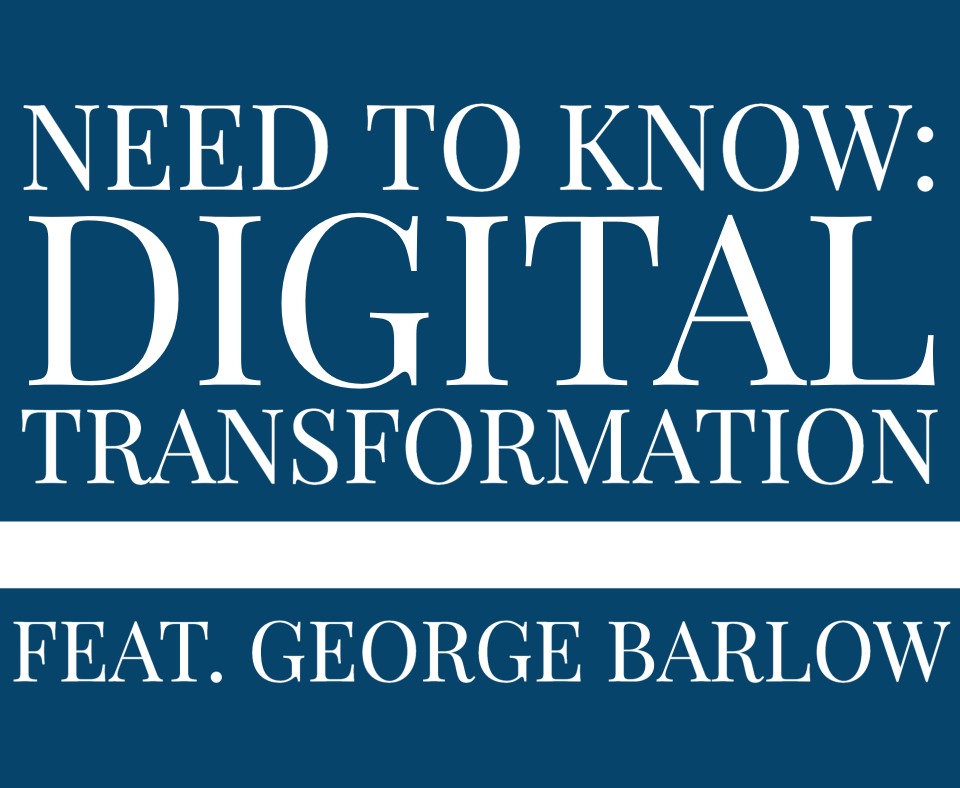Gregg Rock interviews George Barlow.
We are especially excited to let folks know that George is going to be presenting two of our newest courses that are part of the Digital Transformation Specialist series in our Summer Session 1 Training Event.
GR: George, you’ve been a BPM guru for a long time, and you also expanded the areas that you work in to include Decision Management, Case Management, and Automation Technologies. I was hoping that you could connect the dots for our Members to help understand what’s coming down the Pike and what they can do to try to get up to speed with its current state of the art.
GB: Let’s talk a little bit about what people are probably less familiar with. Like BPMN, there’s some additional modeling standards from OMG (that we discussed briefly in an earlier article; What is the Current State of Process Automation?) that can also allow you to create automated applications, based on a standard.
The first one is Decision Management or DMN as it is referred to, and it is a modeling standard that incorporates the old ideas of decision tables and so forth, with lots of advanced and new tools and ideas such as relation tables, reusable business knowledge modules, and documentation of knowledge sources etc. And these can be used as a decision as a service component in compostable applications. What we’re seeing is that DMN is not only connecting to the rules and decision tasks in BPMN, but it’s also replacing proprietary non-standard (standards being important) business rules management systems in many organizations.
Second of all is CMMN, which is case management and modeling notation, so it’s about case management. Case management is a standard that allows the modeling of different kinds of activities that might be performed in an unpredictable order and humans sort of need to evolve the path of the process, if you will, and react to situations which are officially called events. So events happen, and they change to the way things get done. Now, we generally in the early days attempted to fix that problem of case management and BPM by having incredibly complicated BPMN diagrams with every possible thing that could go right and everything that could go wrong. But really, that’s not the job for BPMN: BPMN’s job is to have a path through from start to end that’s pretty clear cut able to be understood and works the same way, every time. Case management allows us to not have things work the same way, every time. You can embed processes inside a case, for example, but by and large it’s a really interesting new area, it’s been around for a while, but the adoption is picking up fairly rapidly and automation is occurring now with case management as well.
Now a great addition to the standards family, if you will, is something called ‘friendly enough expression language’ normally referred to as FEEL. Now that was originally built into the OMG specification in DMN and it sort of extends computational and logical operations and so forth past just simple decision tables. And, interestingly enough, some companies, for example, are now including it into BPMN for use in data mapping, gateway logic, a whole bunch of areas. Some pretty wonderful synergy for standards there, so it’s fun to watch that happen.
And then, finally, I think that enterprise modeling languages— model driven programs, if you will— have enterprise level capabilities, yet they can be modeled and automated completely (or nearly completely) by SMEs and power-users, the so-called citizen developers. So, by seeing this change and how the standards are built to work together, and how vendors are now beginning to make them work together and automatable from models, for visual models, is really exciting.
Editor’s Note: This is a five-part article and video series.
Watch the entire Need to Know: Digital Transformation video series:
Part 1 – Low Code / No Code for process professionals
Part 2 – Process Automation for process professionals
Part 3 – Artificial Intelligence and Machine Learning for process professionals
Part 4 – Decision Automation for process professionals
Part 5 – Migration to cloud computing for process professionals
Read the other articles in the series here:
Article 1: What do BPM Practitioners Need to Know about Low Code/No Code?
Article 2: What is the Current State of Process Automation?
Article 3: How Does AI and Machine Learning Fit Into Low Code/No Code and Process Automation Environments?
Article 5: What Strikes You as Most Significant About the Migration to Cloud Computing?
Want to be featured in the next Need to Know series to share your expertise? Get in touch – we’d love to hear from you.

















